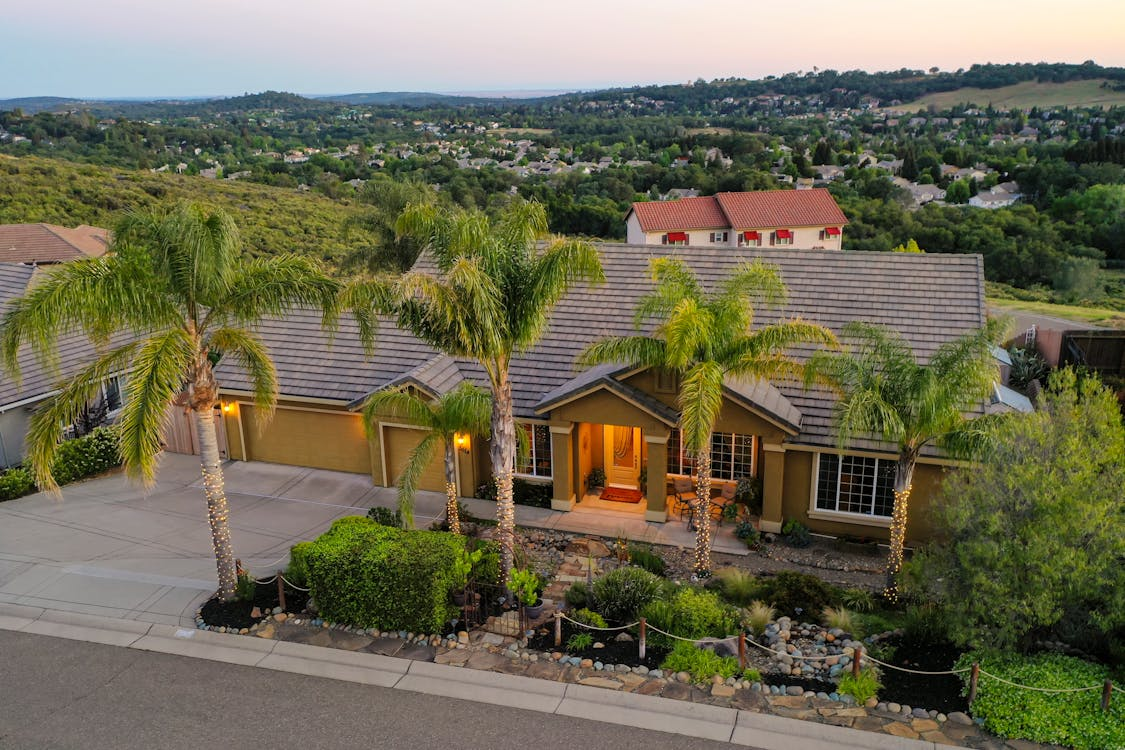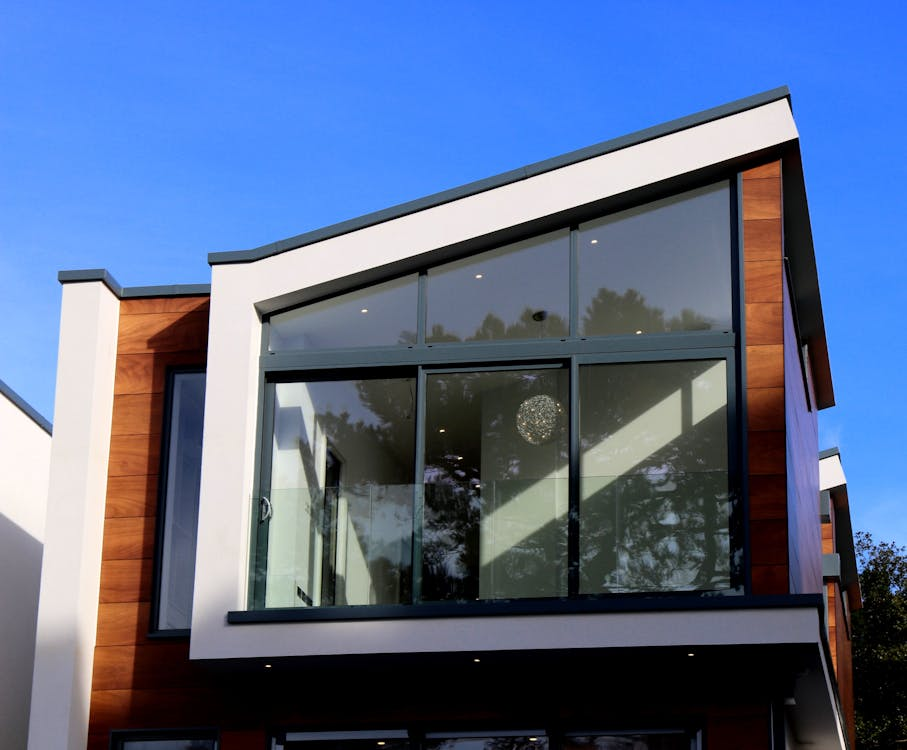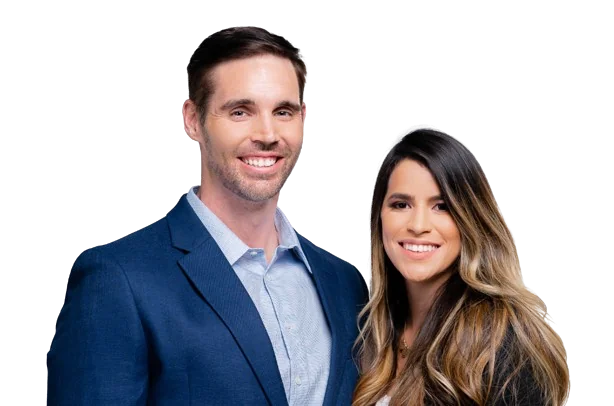Conventional Loans
Homeownership has several advantages over renting a living space. First, there is a little more privacy for many single-family homes. Second, owners can customize the property and invest in upgrades. Lastly, the financial incentive to take out a mortgage and build equity can strengthen your fiancees in the future. While rent payments disappear forever once you make them, mortgage payments increase your ownership stake in the property.
You can pursue several mortgage loan options when you purchase a home. One of the most popular options is a conventional loan. This is the most common type of mortgage. Conventional loans are popular among homebuyers because of their flexibility, various down payment options, and interest rates.
TrueWay Mortgage is a lending expert that can guide prospective buyers through the mortgage process. Our team provides competitive rates and personalized service to ensure you find the conventional mortgage you need. We can discuss your down payment, credit score requirements, jumbo loans, and anything else you have questions about.


What is a Conventional Loan?
A conventional mortgage is the most popular type of home loan in most real estate markets. Conventional loans are not backed by any government entities, unlike FHA, VA, and USDA loans. Private lenders typically offer them, but banks and credit unions also participate in conventional loan programs.
There are two types of conventional loans you should know about: conforming loans and non-conforming loans. Conforming loans fall within the limits set by two government-sponsored enterprises, Fannie Mae and Freddie Mac. Non-conforming loans fall outside those limits but are still considered conventional.
The Federal Housing Finance Agency oversees the organizations that provide loans. The sole purpose of the Federal Housing Finance Agency is to oversee the housing market to ensure that it is reliable and there is a reliable source of funding.
TrueWay Mortgage is committed to simplifying the process of pursuing conventional loans so that our team can help you understand these financing products. We’ll discuss how a down payment will impact your future payments, your credit score, and whether a conforming conventional loan is right for you.
Key Features of Conventional Loans
A conventional mortgage can meet the needs of diverse buyers. While government-backed loans may have certain restrictions on who can apply for them and what types of properties are eligible, conventional mortgages are incredibly flexible.
You can pursue adjustable-rate loans with payments that may shift after several years. If you prefer stability, fixed-rate loans are a better option. A conventional mortgage also has diverse term options and higher loan limits.
At TrueWay Mortgage, we work to understand your needs and then create a tailored conventional loan that suits your financial objectives. We can help you decide if a conforming conventional loan suits you. These meet the requirements set by Fannie Mae, but are slightly different than conventional loans.
Fixed-Rate Conventional Loans
A fixed-rate mortgage refers to a loan with a locked-in interest rate. The interest rate affects both your monthly payments and the total loan amount. The higher the rate, the more you will pay throughout the loan. With a locked-in interest rate, your monthly mortgage payments will be stable and predictable, ensuring a more straightforward budget.
Fixed-rate mortgage loans are ideal for buyers who want consistent payments or plan to live in one home for a long time. Your monthly fee of interest and principal will remain the same for the entire loan term unless you refinance.
Diverse Loan Term Options
A loan term is the time the borrower has to repay the loan. Most homeowners, especially first-time buyers, prefer longer terms because it results in monthly lower mortgage payments. The shorter the loan term, the higher these monthly costs will be. However, a loan term of 20 or 30 years will result in more accrued interest so that you will pay more money in the long run.
This is why conventional mortgages are an attractive option for many buyers. Some buyers can afford the higher payments of a short-term loan. Others need to spread out the expenses over a more extended period. The standard loan terms for conventional mortgages are 15, 20, and 30 years. You should select a loan term based on your financial goals and budget.
Adjustable-Rate Conventional Loans
An adjustable-rate mortgage has payments that shift based on the local housing market. If the interest rates increase in the market, your payments will rise. While this may sound concerning, homeowners who move often or expect to have their income increase over time can benefit from potential savings with an adjustable-rate loan.
Also, most of these loans have initial interest periods where the rate is locked in for several years. After that, there are one, three, or five years intervals. The interest rate will only change after these intervals, and there are typically limits to how much an interest rate can rise or fall.
While variable-rate loans have more risk, you could save a lot of money if the interest rate drops. This would cause your interest payment amount to decrease during that interval, while a homeowner with a fixed interest rate would be stuck with their initial payments.

Benefits of Choosing a Conventional Loan
A conventional loan offers numerous benefits. The advantages can vary from lender to lender, so choosing the right lending partner is essential when applying for conventional mortgage loans. In general, you can take advantage of lower interest rates, no upfront mortgage insurance in some instances, and flexibility for property types.
Competitive Interest Rates
Understanding interest rates is essential when you become a homebuyer. Say you want to buy a home worth $300,000. You can pay $50,000 upfront, so you need to borrow $250,000. However, if you take out a mortgage worth $250,000, you will pay back much more than that amount because of interest. Your goal should be finding the lowest interest rate possible to reduce the costs of borrowing money.
With conventional loans, you have a better chance of obtaining a favorable interest rate with strong credit. The higher your credit score, the more likely lenders will see you as a low-risk borrower. Therefore, they may offer lower interest rates to incentivize you to apply for a loan. Some other types of mortgage loans may target borrowers with lower credit scores, making it difficult for buyers to access lower rates to save money.
No Upfront Mortgage Insurance
One of the ways a lender will offset borrower risk is with private mortgage insurance premiums. This is typically done when a borrower cannot meet a down payment of 20%. However, private mortgage insurance can be waived if you can afford that threshold. Often, this includes an annual premium paid upfront when you close on the home.
If you can afford the 20% down payment, you can avoid the private mortgage insurance payment and reduce your closing costs. This lowers the upfront costs of home buying, and many government-backed mortgages require upfront insurance premiums.
This is not the same as homeowners insurance. Saving on mortgage insurance is often worth paying more upfront for the down payment. Reducing the total cost of your loan will lower the total interest you will pay during the loan.
Flexibility in Property Types
Conventional loans can purchase various property types, while many government loans have restrictions. For example, you could finance a primary home, vacation home, second home, or even an investment property with a conventional mortgage.
However, goverment backed mortgages like an FHA loan and USDA loan can only be used to purchase a primary residence. Conventional mortgage loans offer borrowers more freedom to buy the properties they want. Additionally, you can apply for traditional financing repeatedly, while other loan programs limit how many times you can use them.
The flexibility makes these more appealing for investors than government backed mortgages like VA loans. However, conventional loans have different requirements than other mortgage loans in terms of income and credit score requirements. You don’t have an entity like Veterans Affairs to help you.
Conventional Loan Eligibility Requirements
Conventional loans typically require the same standards for borrowers from lender to lender. However, there could be some slight variations depending on your financial background, the housing market you are searching in, and the individual lender's criteria.
Most conventional mortgage qualifications involve a minimum credit score, a maximum debt-to-income ratio, and a down payment requirement. Self-employed borrowers may need to provide proof of cash reserves and yearly income.
TrueWay Mortgage will help you understand these criteria and create a plan to qualify for conventional loans. Let’s look at these qualification standards individually.
Down Payment Options
The down payment is the money you pay upfront to lower the total loan amount. The absolute minimum down payment for a conventional loan is 3%. Most private lenders would rather see a down payment of 10-20% from the borrower.
You can waive the mortgage insurance premiums by managing a 20% down payment. This broad range of down payment requirements allows more types of borrowers to qualify for homeownership.
Debt-to-Income (DTI) Ratio
A debt-to-income ratio is calculated by dividing your monthly debt obligations by your gross monthly income. You multiply the result to get a percentage. The higher this percentage, the harder it may be to afford your mortgage payments.
To maintain a healthy balance between income and debt, borrowers should strive for a maximum DTI ratio of 43%. This would help them qualify for a conforming conventional loan with most lenders. However, you could still be eligible with a DTI ratio of 50% if you have significant cash reserves or high income.
Credit Score Expectations
Your credit score reflects your ability to pay back debts. Low credit scores may indicate you are not a reliable borrower or that you have a short credit history. Both situations can make it challenging to qualify for conventional mortgage loans.
The typical minimum credit score for a conventional loan is 620. Exceptions could be made for a lower credit score if you have a bigger down payment or significant income. Some lenders may have stricter standards, requiring borrowers to have higher credit scores of 700+.
Individuals who don’t qualify for loans through Veterans Affairs or another entity may qualify for subprime loans. Subprime loans are like conventional ones for people with lower credit scores. However, they often have a higher interest rate.
At TrueWay Mortgage, we proudly support borrowers striving to meet these expectations. We will work with each buyer to create a custom conventional loan product based on their financial background.
Conventional Loans for First-Time Homebuyers
A conventional mortgage is a great solution for first-time homebuyers. Often, new borrowers feel intimidated by the costs of buying a home. However, some conventional programs are flexible enough to accommodate these buyers.
You could secure a conventional mortgage with a down payment as low as 3% if you have a strong credit report and cash reserves. Flexible terms are also available, so you can choose between an adjustable and fixed-rate mortgage that lasts 15, 20, or 30 years.
TrueWay Mortgage can offer guidance as you assess your financial situation and consider conventional financing. We aim to help you secure your home with an affordable and accessible home loan that meets your needs.

Comparing Conventional Loans to Government-Backed Loans
Buyers have numerous options for their home loans. While conventional financing may be the most well-known mortgage product on the market, millions of buyers use FHA, VA, and USDA loans to purchase their properties. Let’s compare these options with conventional loans to help you determine when a traditional mortgage is the best fit for your situation.
Conventional Loans vs. FHA Loans
Federal Housing Administration (FHA) loans are another standard financing product for homebuyers. The Federal Housing Administration ensures lenders can offer borrowers more favorable terms, such as low interest rates, lower credit score requirements, lower down payment standards, and reduced mortgage insurance rates.
With an FHA loan, you must pay a down payment of 3.5% if your credit score is 580 or above. You may need to pay 10% if you fall below that number. FHA loans often require homeowners insurance, and you must submit documentation, such as a credit report, during the application process.
FHA loans can work for many borrowers, but conventional products have several advantages. First, there is more flexibility with the type of property you can buy, as an FHA loan requires a primary residence. Also, conventional loans offer both conforming loans and non-conforming loans. This means there are no limits to how much you can borrow with a conventional mortgage.
If you want to purchase a home above the limits of Fannie Mae and Freddie Mac, you will need conventional, non-conforming loans. These are often called jumbo loans. Plus, if you pay a large enough down payment, you can avoid mortgage insurance entirely, which is not true for an FHA mortgage.
Conventional Loans vs. VA and USDA Loans
A VA loan is only available to certain veterans, active-duty service members, and surviving spouses. These borrowers can take advantage of no down payment requirement, no mortgage insurance, and competitive interest rates.
However, using this loan depends on your service record and VA entitlement, which could be used up after buying your first home. Conventional loans could be used to purchase homes throughout your lifetime. Plus, there is no VA funding fee to pay upfront.
USDA loans are available to borrowers in rural and suburban areas. They are geared toward those with low-to-moderate income. As a result, if you have a higher income, you cannot qualify for a USDA mortgage.
USDA loans are not as flexible as conventional mortgages because you can only buy primary residences in designated zones. You are unlikely to be eligible for a USDA loan if you want a home in an urban area or affluent suburban neighborhood.

Why Choose TrueWay Mortgage for Conventional Loans?
Choosing an experienced lender can make all the difference in affording your home’s purchase price. When you seek government programs for financing, there are numerous restrictions and qualification standards.
A conventional loan from TrueWay Mortgage offers far more flexibility. Whether you want to buy a primary residence or a rental property, your conventional mortgage is eligible for either purchase. You can choose between adjustable and fixed interest rates. Our team can adjust the loan term to suit your timeline and budget.
TrueWay Mortgage is committed to providing competitive interest rates, expert guidance, and personalized service. Rather than force you through a cookie-cutter process, we guarantee a tailored approach that meets your needs.

Contact Sam and Anisha Mauldin
TrueWay Mortgage
Start Your Conventional Loan Journey Today
Our team is ready to help borrowers with varying needs secure the perfect loan for their home purchases. Whether you need nonconforming loans, FHA mortgages, or conventional financing, TrueWay Mortgage can help you find the right solution.
We can answer your questions about our conventional conforming loans' minimum credit score, down payment requirements, and income standards.
Check out our quick quote tool to assess today’s rates for various types of mortgages. If you are ready for a consultation with loan experts, call us today at 404-962-0032 to start the conversation.
